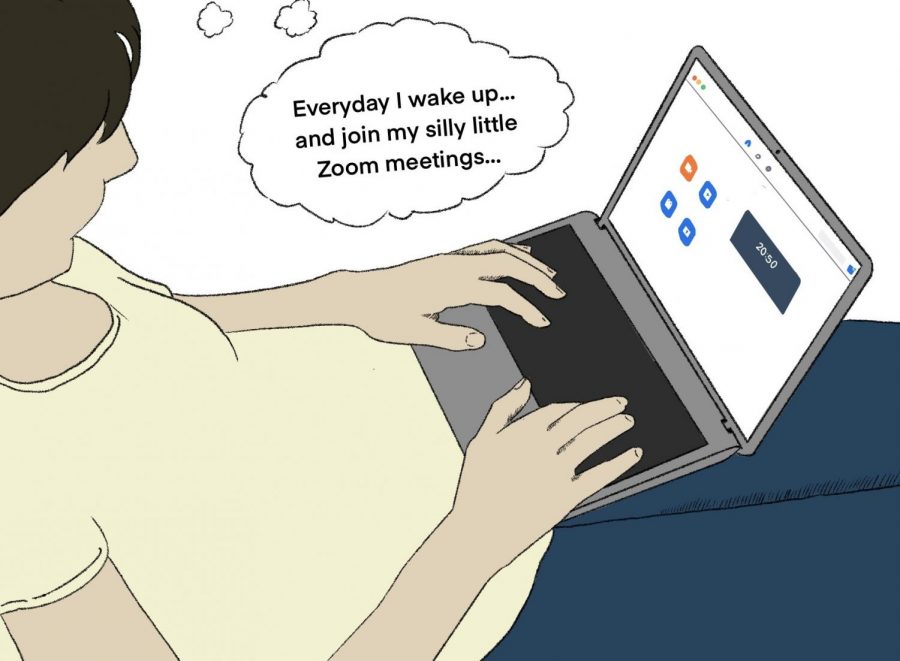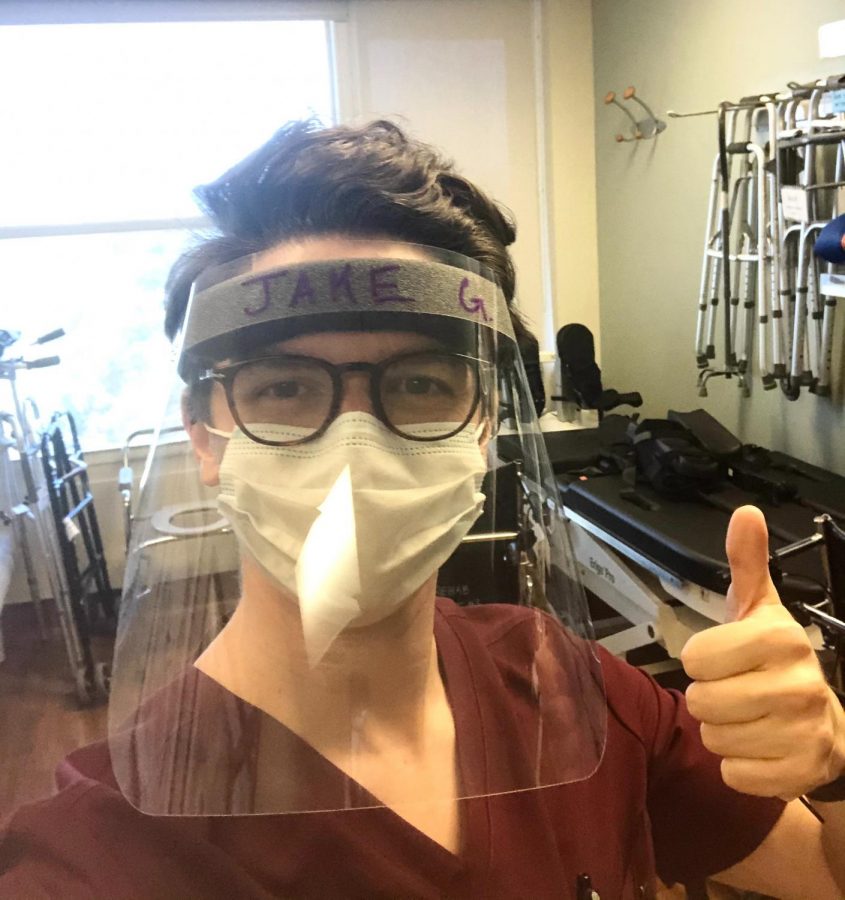For many of us, working from home or having to take part in online classes means we spend a lot of time on video meeting applications like Zoom. We are on video calls more than ever before — and honestly, it can be exhausting.
The first couple of times might have been fine. Even with the occasional technical difficulty, at least you could communicate with friends about how COVID-19 canceled your summer plans. Hopping onto Zoom with friends or family could have been a highlight of a vacant calendar, due to the pandemic, but now, it can be overwhelming after using the app several times for several things.
According to CNBC, Zoom users spiked to about 200 million in March from 10 million in December of last year. Applications like Zoom remind us that there are ways to stay connected with others while social distancing but there are downsides as well that play into the idea that “zooming” is exhausting. The thought of another meeting or class session may cause stress or a number of adverse emotions to arise.
Being on a video call requires more focus than face-to-face interactions. We have to work harder to interpret non-verbal cues and delays. We can’t just indulge in conversations as if we were communicating with someone in person.
Any silence makes us anxious that there is a problem with our technology. In this way, we are constantly on the edge of our seat, hoping our internet connection is strong enough to prevent any technical difficulties.
We are aware of being watched, which comes with social pressure. Often, we are self-conscious about the way we look in general. However, with Zoom and turning on our web-cameras – even though this is optional – we are even more focused on how we look and how we present ourselves to others in a virtual setting.
Aspects of our lives that used to be separate are now all happening in the same place. This makes us more vulnerable to negative feelings. Nowadays, people are going on virtual dates, meeting professors in office hours and celebrating events through a screen. The fact that all of these contrasting occurrences now happen over Zoom can be exhausting to comprehend.
The video calls remind us of all that we have temporarily lost. We should all be in a classroom together but we are not. We should be networking in person but we are not. We should be celebrating birthdays and engagements with loved ones but we are not. Zoom offers us the option to do this virtually but there isn’t always a positive feeling with having to sign in with a meeting ID and password to do the things that were once in person.
Socialization, especially in larger groups, feels more like an obligation and a performance rather than a time to relax. You are not alone. People, no matter their age, occupation or location, are experiencing the exhaustion that comes along with constantly using Zoom in place of in-person contact.
We are living through a global pandemic and that reality can trigger a number of emotions. Limit Zoom calls when you can. Take breaks from screens in between them to drink water, exercise and relax. Give yourself permission to take personal days where you won’t use Zoom, despite what event or meeting is happening. Remember it is okay to not be on your A-game. Take care of yourself first.
Trinity Bland is a junior studying television, film and media. Follow her on Twitter @trinityaliciaa.















